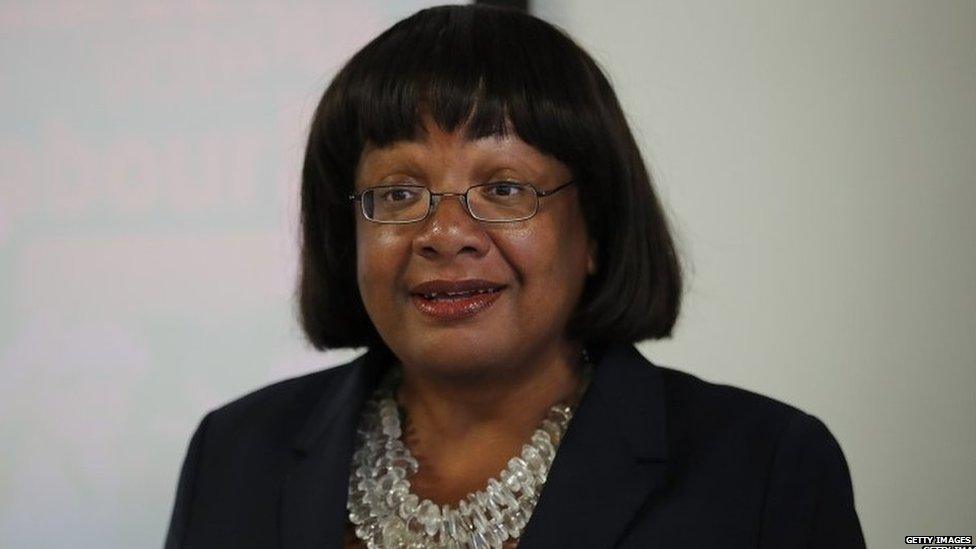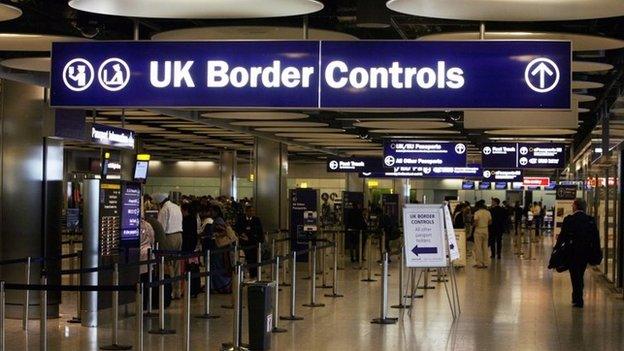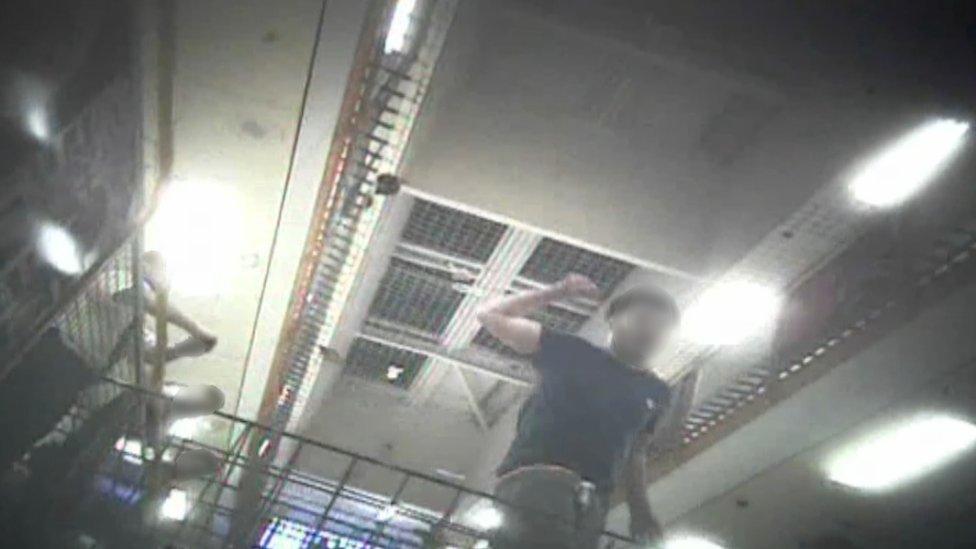Labour vows to end 'heartbreaking' deportation rules
- Published

Ms Abbott said immigration policy would be based on "Labour values"
Labour has vowed to change immigration rules it says are breaking up families.
Diane Abbott said a Labour government would end the "heartbreak" of children of migrants being deported once they turn 18 even when their parents have gained the right to stay in the UK.
The shadow home secretary also said the parents of child refugees who come to the UK should be allowed to join them.
The Tories said this risked creating an increased incentive for children from war zones to try coming to the UK.
In a speech to the Policy Institute in London, Ms Abbott said the "right to a family life" and the principle of family reunion would be at the heart of her party's "humanistic" approach to immigration policy after Brexit.
"We don't want to see the break-up of families from the EU in the way we currently do for non-EU families."
She suggested her party's refusal to "scapegoat" immigrants had contributed to its gains in last year's election, contrasting Labour's rhetoric on the issue with that of other left-of-centre parties across Europe.
She said it was "not fair nor reasonable" to separate children from their parents on immigration grounds or bar the parents and carers of children granted asylum or leave to remain in the UK from joining them.
"This commitment underlines our commitment to human rights. This is the application of Labour values and it is the right thing to do," she said.
As part of a proposed overhaul of deportation rules, she called for an end to situations where migrants and asylum seekers told they could not settle in the UK were forcibly returned to countries with which they had little connection.
She also pledged to end the indefinite detention of asylum seekers and migrants and review the role of private companies in running holding and removal centres.
'Artificial targets'
She rejected suggestions Labour continued to support an open-door immigration policy, saying it backed "sensible and humane" controls that recognised that immigration was not always an "unalloyed benefit" and created pressures on public services in parts of the UK.
Labour's approach, she argued, would not be based on numbers but a system of "fair rules and reasonable management", which prioritised the economy and jobs and ensured a level-playing field for migrants, wherever they originated from.
She claimed the government's target of reducing annual net migration to below 100,000 was resulting in much-needed doctors and nurses from outside the EU being turned away and landlords and health professionals effectively being transformed into immigration enforcement officials.
"We won't have artificial targets or 'go home' vans," she said. "In a global world, we need migration and migrants. They should not be subjected to a hostile environment."
A Conservative spokesman said the government was committed to giving a home to those "most in need" and that the UK had resettled 23,000 of the most vulnerable refugees from Syria and elsewhere in the Middle East, including 9,000 children, over the past year.
"Labour's policy would risk breaking up families by creating a dangerous incentive for children to make the perilous journey across the Mediterranean and on to the UK on their own," he said.
- Published15 March 2016

- Published1 September 2017
